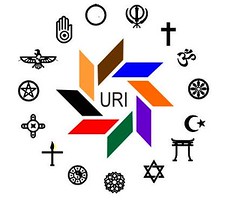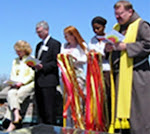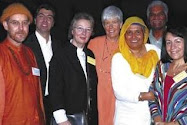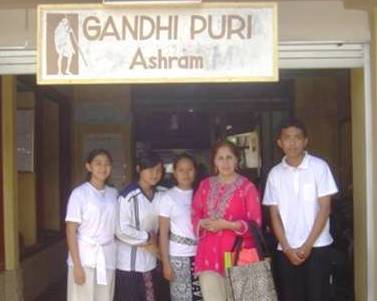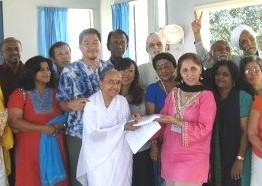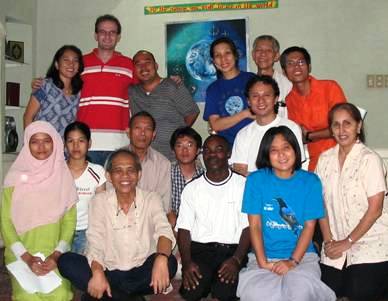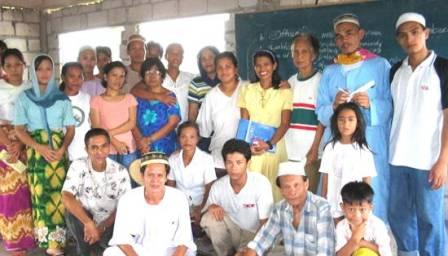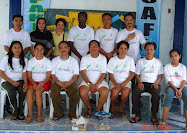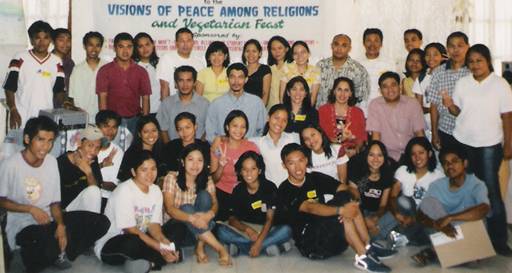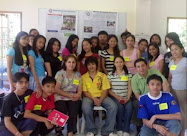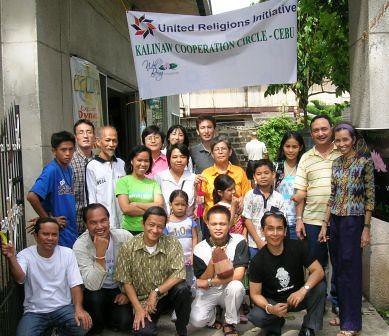Waitangi, New Zealand (May 29 - 31, 2007)
SPECIAL REPORT
by Marites Guingona-Africa
The Peacemakers' Circle URI CC Philippines
I was privileged to be part of the Philippine delegation that was among the 150 delegates representing the diversity of religions and cultures in 15 countries in the Asia-Pacific region. We gathered together in Waitangi, New Zealand from May 29 to 31, 2007 to “Build Bridges” of interfaith understanding and cooperation in our parts of the world. Being the third in the region, the conference built on the commitments from the 1st Asia-Pacific Regional Interfaith Dialogue Conference in Yogyakarta , Indonesia in December 2004 and the 2nd Conference in Cebu , Philippines in March 2006.

At the conference, New Zealand Prime Minister, Rt. Hon Helen Clark, acknowledged the rich diversity in our region “where all the world’s major religions are represented,” and called on “responsible nations and people of good will to build bridges across the divides of our societies." Her call was echoed by the other nation leaders who expressed hope that despite our differences in culture and beliefs, we, in Asia and the Pacific, will be able to create “greater mutual understanding and respect for each other” and “deeper interfaith ties within the region towards building a culture of peace.” This is a “shared journey that demonstrates the diversity and openness of our societies,” it was said. The role of regional dialogue in connecting religious leaders and faiths across the region was deemed of great importance, and building bridges at all levels of society was called for.

The resulting Waitangi Declaration recommended that faith leaders and governments establish and facilitate faith and interfaith points of contact at the local and national levels; that there be further exchanges between people (e.g. youth, students, teachers, religious leaders, academics) of different faiths, within and between countries, and at the grassroots communal levels; and that faith groups and civil society develop partnerships with each other and with governments to work for social and economic justice, minority empowerment and reconciliation among conflicting groups within society.
The sense that something big and awe-inspiring is happening in our midst heightened my awareness of the significance of the URI. I spoke of the URI before the plenary during the first day of the conference as I responded to the talk of Dr. Zainal Abidin Bagir of Indonesia on the challenges and opportunities of Interfaith Action for Peace and Security.
This 3rd Asia-Pacific Regional Interfaith Conference in Waitangi had me experiencing, for the second time in my life, the sense of awe at seeing the world the way I envisioned the world to be, the realization of the kindom of God here on earth. The first time I had that experience was in 1999 at the URI Summit in Stanford University in California where two hundred people from diverse religions, spiritual expressions, and indigenous traditions gathered together in the spirit of mutual respect, understanding, and cooperation to articulate their hopes, dreams and aspirations for the world in the United Religions Initiative Charter! I feel blessed to have borne witness to two momentous occasions in history!

On the third and last day of the conference, we, the 150 delegates, came up with a plan of action focusing mainly on three areas of concern:
Building bridges,
Education (with emphasis on the strengthening of intra-faith dialogue); and the
role of Media.
As I listened to the various articulations of our highest hopes, dreams and aspirations, and bore witness to the gentle workings of the human spirit in seeking wholeness for itself and oneness in our midst, I could not help but realize that, truly, we are at the threshold of something big and awe-inspiring happening in the world!
Back home, as I reflect on the Waitangi experience, I am filled with hope and joy knowing that there is a growing awareness in our midst of the need to cross the great divides in our parts of the world and to collaborate with one another. But I also realize that the best action plan that I could take in this direction is that of disarming the heart and speaking the language of the heart so that all of us may come together to that "safe space," that "sacred ground" of our common humanity, and together we can bring forth the triumph of our human spirit!
 3rd Asia-Pacific Regional Interfaith Dialogue
3rd Asia-Pacific Regional Interfaith Dialogue

 On the third and last day of the conference, we, the 150 delegates, came up with a plan of action focusing mainly on three areas of concern: Building bridges, Education (with emphasis on the strengthening of intra-faith dialogue); and the role of Media.
On the third and last day of the conference, we, the 150 delegates, came up with a plan of action focusing mainly on three areas of concern: Building bridges, Education (with emphasis on the strengthening of intra-faith dialogue); and the role of Media. 
